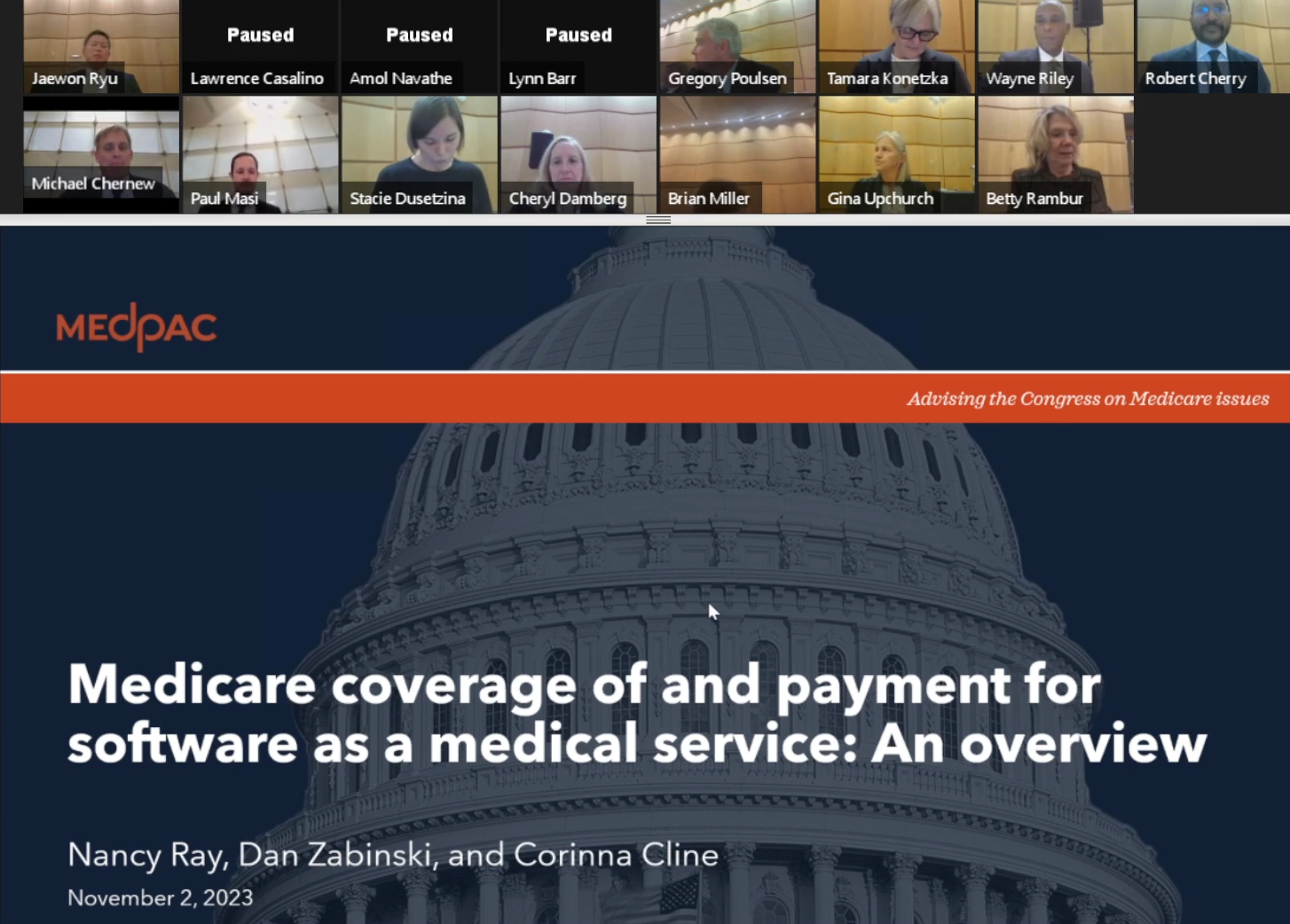On November 2, 2023, MEDPAC, the official body advising on Medicare policy, held a one-hour discussion of CMS policy and payment for software as a service. There was a staff presentation followed by panel Q&A.
See an unofficial video grab:
See an unofficial auto transcript here:
https://docs.google.com/document/d/1zwwIuKMagqaGikwItXLTAAInSYuW9inLtygJiIOm8e0/edit?usp=sharing
See a brief AI assisted summary [ChatGPT3.5]:
This memo summarizes a meeting of MEDPAC on November 2, 2023. The discussion revolved around the integration of new technologies, particularly artificial intelligence (AI) and machine learning, into the healthcare system. Herea are several several key points:
Technology Advancement: The participants acknowledged the rapid pace of technological advancement, particularly in AI and machine learning. They recognized that these technologies are evolving quickly and can have a significant impact on healthcare.
Budget Effects and Access: While budget considerations are important, the primary concern emphasized in the discussion was ensuring that individuals have access to these new technologies. The focus was on solving problems related to payment and access rather than budgetary constraints.
Development and R&D: The participants highlighted the unique challenges posed by new technologies. They emphasized that the development and research aspects of these technologies resemble those of drugs, making it important to consider how they fit into the existing payment system.
Bundling vs. Fee-for-Service: There was consensus among the participants that while bundling is an ideal payment model for these technologies, it may not be applicable in all cases. Some technologies may exist outside of bundled systems, which can affect their adoption and appropriation of savings.
Cost-Effectiveness: The discussion raised the point that the cost-effectiveness of a technology depends on the healthcare system in which it is deployed. What works well in one system may not be effective in another, which makes decision-making complex.
Negotiations and Pricing: The participants highlighted the complexity of negotiations and pricing for new technologies. They noted that the pricing strategy is often based on charging more to receive higher payments, which may not align with the goal of cost-effectiveness.
Tracking and Typologies: It was suggested that tracking the impact and typologies of these technologies is essential. Understanding how they save costs, who appropriates the savings, and how RVUs (Relative Value Units) are adjusted are critical factors to consider.
Recommendations and Future Steps: The discussion concluded with the acknowledgment that there is no immediate solution or set of recommendations for integrating new technologies into the Medicare system. It was emphasized that more thinking and analysis are needed.
In summary, the discussion at the MEDPAC meeting highlighted the challenges and opportunities presented by new technologies in healthcare, particularly AI and machine learning.
While there was a recognition of their potential to improve efficiency and quality, there was also an awareness of the complexities surrounding payment, adoption, and integration into the existing healthcare system. The participants emphasized the need for further analysis and understanding of the unique dynamics of these technologies in healthcare.
